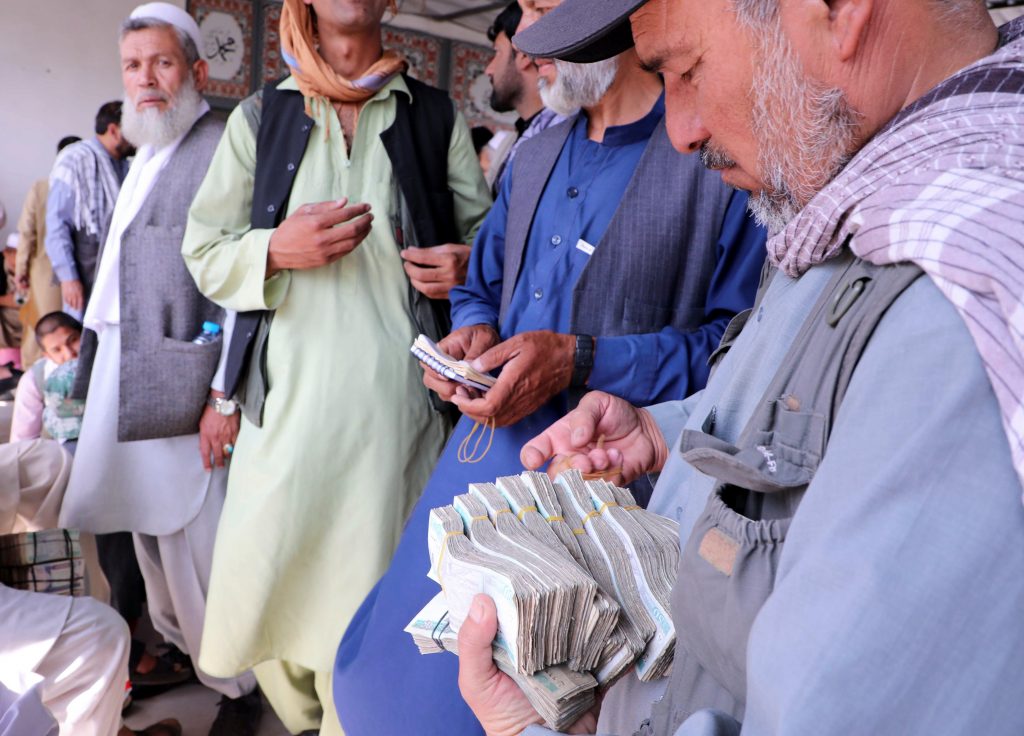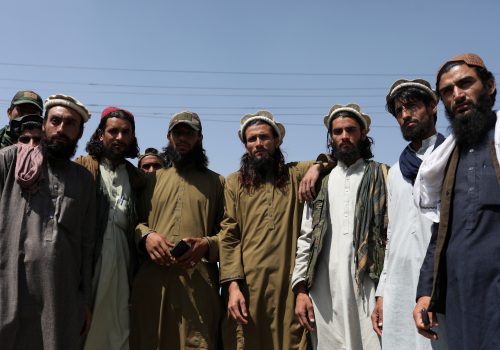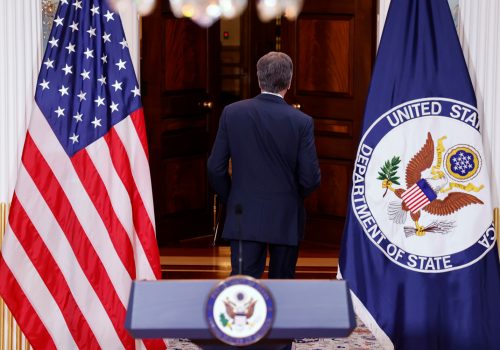Among the many questions raised by the Taliban takeover of Afghanistan—on topics from international terrorism to women’s rights—one is particularly pressing: What happens now to the country’s economy?
With more than nine billion dollars of the Afghan central bank’s foreign reserves frozen, mostly in the United States, the Taliban faces the daunting prospect of governing a country short on cash and mired in multiple crises.
“They had sufficient revenues to run an insurgency but not to run a government,” said Ajmal Ahmady, the former governor of Da Afghanistan Bank (DAB). Ahmady, who fled the country shortly after the government’s collapse, spoke about the array of economic difficulties facing the Taliban at an event Friday hosted by the Atlantic Council’s GeoEconomics Center, South Asia Center, and Rafik Hariri Center for the Middle East. Here are some more highlights from the conversation, moderated by GeoEconomics Center Director Josh Lipsky, and C. Boyden Gray Senior Fellow and Deputy Director Julia Friedlander.
More questions than answers
- While he doesn’t foresee economic collapse, Ahmady predicts an “extremely challenging” road ahead marked by widespread uncertainty. As the international community debates how to support aid-dependent Afghanistan without bankrolling the Taliban, the country badly needs help. “Afghanistan was already facing a triple shock,” Ahmady said, referring to COVID-19, the country’s second drought in four years, and the ongoing armed conflict.
- It’s unlikely the Taliban will ever access the billions of dollars locked up largely in the Federal Reserve Bank of New York. Even if the international community decided to tap into those funds to finance relief efforts in Afghanistan, Ahmady hypothesizes, he points to a question he says would pose a significant problem: “Who would make that decision? Would it be the [International Monetary Fund]? Would it be the US Treasury?”
- Looking ahead, he added, international policymakers will also need to reexamine how they apply existing multilateral sanctions on the group. Here, Ahmady said, the question they should be asking is: “How can the sanctions structure be optimized so that humanitarian aid can be delivered to Afghanistan without running afoul of the sanctions regime?”
A lack of cash—and expertise
- In response to the Taliban’s lightning offensive last month, Washington halted shipments of dollars to Afghanistan in a bid to keep cash away from the group. But that spells trouble for the heavily cash-based economy, which relied on those regular shipments to cover its trade deficit. Combined with the fact that even local currency will be hard to come by—since afghanis are printed outside the country—that means “inflation will definitely rise,” Ahmady said.
- Like any entity facing a funding squeeze, the Taliban—which Ahmady estimates has access to hundreds of millions of dollars locally—will be forced to cut government staff and reduce salaries, leaving fewer capable people to guide policy. Meanwhile, other experts with high-level experience will look abroad for better opportunities. That, Ahmady said, “will decrease the technical capabilities” of various government ministries.
China to the rescue?
- With the United States now out of Afghanistan, many in the policy world anticipate that Russia and particularly China will be keen to step in. Not so fast, Ahmady says: China is more cautious than you might think. Despite reports that Beijing is interested in Afghanistan’s mineral reserves, among other assets, this would amount to “a multi-year investment process” that would do little to boost the Afghan economy in the short-term, he says.
- Ahmady has direct experience: While attending a Belt and Road Initiative conference during his stint as minister of commerce from 2019 to 2020, he found his Chinese interlocutors were hesitant to build on their existing investments in Afghanistan. “So I would expect that same framework to apply now,” he said. “Perhaps they’ll make promises to invest large amounts—but the actual implementation of those, I think, is a long time coming.”
Dan Peleschuk is the New Atlanticist editor at the Atlantic Council.
Further reading
Image: Afghan money exchange dealers trade at a market in Kabul, Afghanistan, on September 4, 2021. Photo by Reuters.



